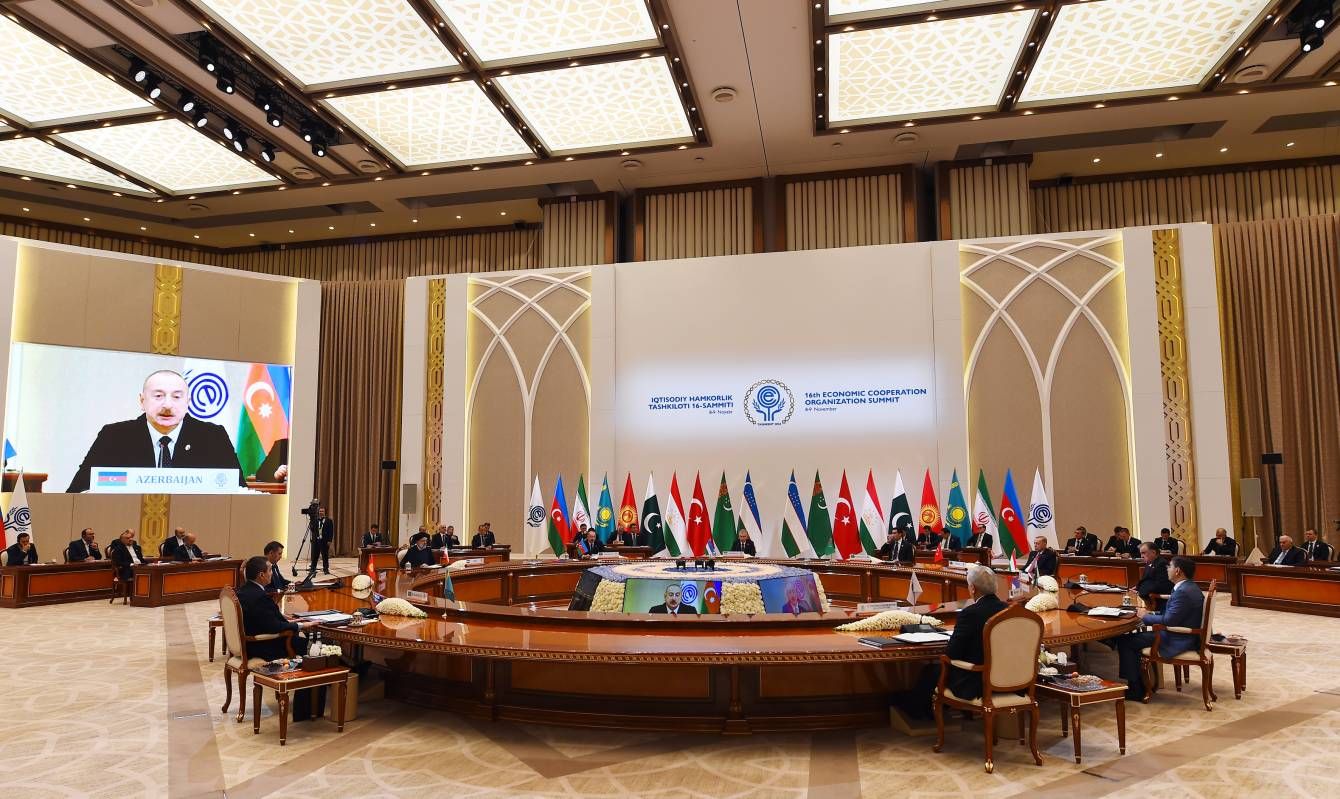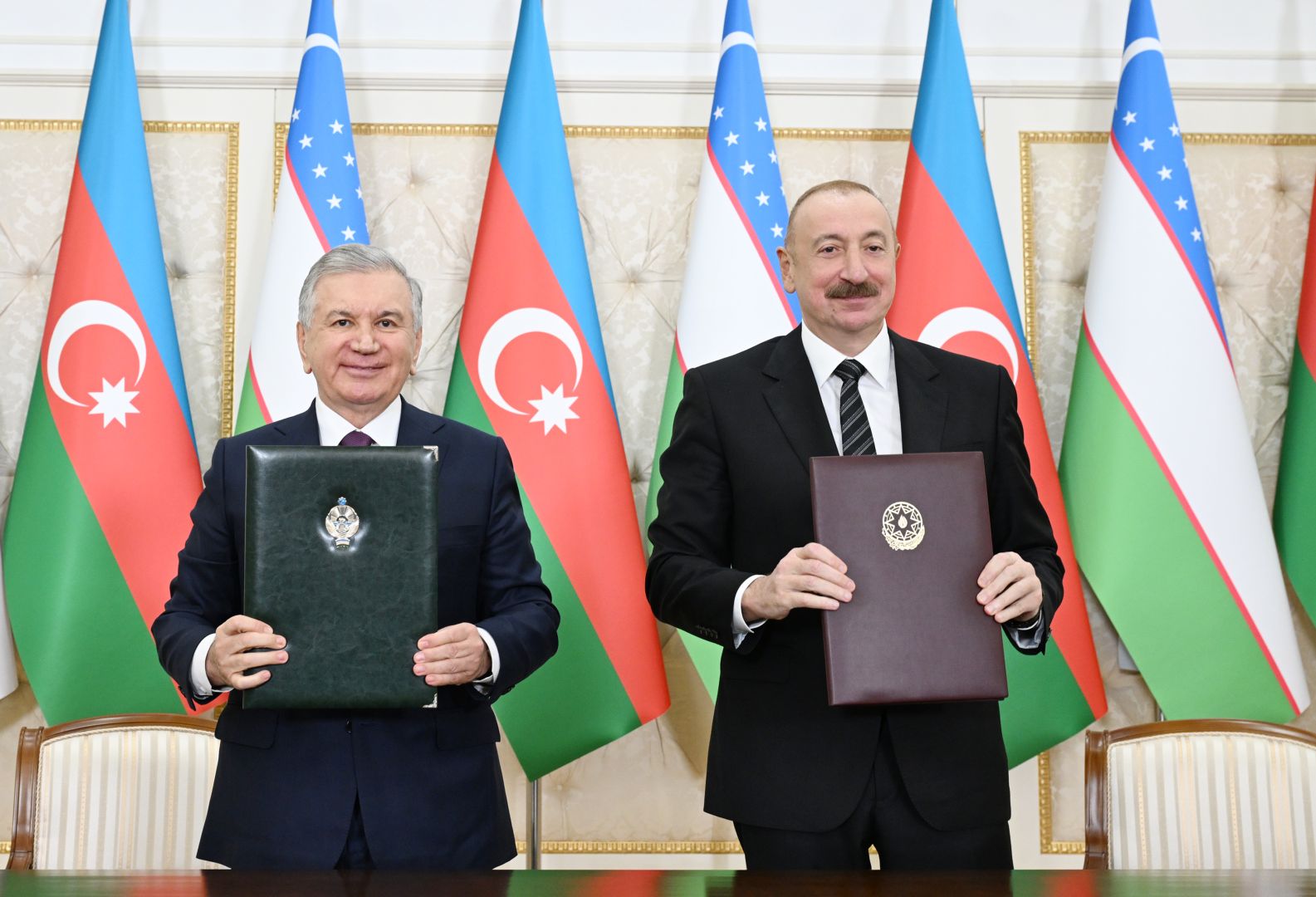As the geopolitical and economic landscapes of Eurasia continue to shift, the ties between Azerbaijan and Uzbekistan stand out as a compelling model of brotherly cooperation, grounded in shared heritage and driven by strategic vision. These relations, historic in depth and forward-looking in intent, reflect not only a strong bilateral alignment but also a broader convergence of regional interests, from energy to logistics, and from diplomacy to digitalisation.
The cultural links between Azerbaijan and Uzbekistan run deep. Although formal diplomatic relations were only established in 1995, the fraternal bond between the two peoples predates modern statehood. From the inspiration that the Uzbek poet Alisher Navoi drew from Nizami Ganjavi’s “Khamsa”, to the Bukhara caravanserai built in Baku’s Old City in the 15th century, the mutual cultural reverence has long been evident. The burial site of Azerbaijani philosopher Yusif ibn Muhammadjan Qarabagi in Samarkand symbolises centuries of scholarly exchange between the two nations.
During the Soviet period, these ties were further deepened. Tens of thousands of Azerbaijanis found refuge in Uzbekistan during the 1930s political repressions, and Azerbaijani workers played a vital role in rebuilding Tashkent after the devastating 1966 earthquake. Today, nearly 70,000 Azerbaijanis live in Uzbekistan, actively participating in its social and economic life, a testament to enduring people-to-people connectivity.
Moreover, the foundation of modern bilateral relations was laid by national leaders with visionary outlooks. The friendship between Heydar Aliyev and Islam Karimov, the founding fathers of the modern Azerbaijani and Uzbek states, set the tone for strategic engagement. National Leader Heydar Aliyev’s official visit to Uzbekistan in June 1997 marked a turning point, paving the way for structured cooperation in trade, infrastructure, and diplomacy.
President Ilham Aliyev has since carried forward this legacy with vigour, establishing robust diplomatic relations with Uzbek President Shavkat Mirziyoyev. The frequency and substance of high-level visits between Baku and Tashkent are illustrative: from the 2004 Declaration on Strategic Partnership to the landmark visits in 2022 and 2024, the Azerbaijan-Uzbekistan relationship has evolved into one of the most dynamic in the Turkic world.
A symbolic moment of this brotherhood came in 2022, when a memorial corner for Heydar Aliyev was inaugurated in central Tashkent. In return, the Uzbek government constructed and gifted a secondary school named after astronomer Mirza Ulugh Beg in Fuzuli, on Azerbaijani territory liberated from Armenian occupation, a gesture rich in symbolism and solidarity.
Economic convergence and regional ambition
Azerbaijan and Uzbekistan are emerging as economic engines of the Turkic world. Both are strategically located along vital trade corridors and have prioritised connectivity as a pillar of foreign policy. Azerbaijan’s multimodal logistics infrastructure, including the Baku International Sea Trade Port, the Baku-Tbilisi-Kars railway, and the Trans-Caspian International Transport Route, aligns seamlessly with Uzbekistan’s ambition to access European and Black Sea markets.
The 2022 intergovernmental agreement on international road transport further reinforced this collaboration, aiming to boost overland freight between Central Asia and Europe via Azerbaijani territory. Uzbekistan’s inclusion in regional transit networks, supported by Azerbaijani infrastructure, is not merely logistical; it is geopolitical.
This was further cemented by the November 2024 Trilateral Summit in Baku between Presidents Ilham Aliyev, Shavkat Mirziyoyev, and Kassym-Jomart Tokayev of Kazakhstan. There, the three states signed a landmark agreement on strategic partnership in the development and transmission of green energy, underlining their shared vision for a sustainable and interconnected Eurasia.
ECO and multilateral engagement
Azerbaijan's active participation in the Economic Cooperation Organisation (ECO) has further elevated its role as a regional connector. The 16th ECO Summit, hosted by Uzbekistan in 2023, and President Aliyev’s involvement, underscored Baku's commitment to economic multilateralism.
 ECO, comprising 10 member states with a population base exceeding 550 million, is one of the largest regional blocs in the Islamic world. Azerbaijan’s leadership and diplomatic initiatives within this forum have brought new dynamism to trade, energy, and digital connectivity agendas.
ECO, comprising 10 member states with a population base exceeding 550 million, is one of the largest regional blocs in the Islamic world. Azerbaijan’s leadership and diplomatic initiatives within this forum have brought new dynamism to trade, energy, and digital connectivity agendas.
Looking ahead, the upcoming 17th ECO Summit, reportedly to be held in Khankendi, marks a watershed. It not only demonstrates Azerbaijan’s desire to repurpose its post-conflict territories into hubs of cooperation, but also signals to the world that peace and progress are possible outcomes of post-war diplomacy. Uzbekistan, as one of the key supporters of Azerbaijan’s territorial integrity, will likely play a crucial role in shaping this narrative.

Azerbaijan’s foreign policy increasingly rests on a unique combination of soft power and hard infrastructure. The development of transport corridors, energy links, and digital platforms is not just about trade; it is about projecting influence and shaping regional norms. With Uzbekistan as a reliable partner, Baku is pushing for closer integration of the Middle Corridor—the Trans-Caspian route linking China to Europe via Central Asia and the South Caucasus.
This cooperation has far-reaching implications. Not only does it reduce reliance on Russia-centric transit networks, but it also positions both Baku and Tashkent as alternative centres of influence within a recalibrated Eurasian order. The growing institutional cooperation—through the Turkic Council, the Organisation of Islamic Cooperation, and ECO—offers further platforms for joint action.
What makes the Azerbaijan-Uzbekistan partnership particularly resilient is its multi-dimensional character. From cultural foundations to political alignment, from economic synergy to regional vision, the relationship has matured into a strategic alliance capable of shaping the future of Eurasia. It is no coincidence that over 170 agreements have been signed between the two countries, including declarations on deepening strategic partnership and expanding comprehensive cooperation.
President Shavkat Mirziyoyev’s most recent visits to liberated cities like Shusha and Fuzuli—alongside Azerbaijan’s hosting of high-level summits—reflect a shared commitment to reconciliation, development, and Turkic unity. The creation of “Uzbekistan Park” in Baku and the opening of the new Uzbek Embassy building during his 2024 state visit are further signs that this cooperation is rooted not in symbolism alone, but in substance.
Finally, in an era of shifting alliances and complex multipolar dynamics, Azerbaijan and Uzbekistan have crafted a bilateral relationship that transcends transactional diplomacy. It is a partnership of trust, rooted in a shared past and propelled by a strategic vision for the future. As Azerbaijan deepens its role as a regional leader—through ECO, energy diplomacy, and infrastructure investment—its alliance with Uzbekistan will remain a cornerstone of Eurasia’s evolving architecture.

